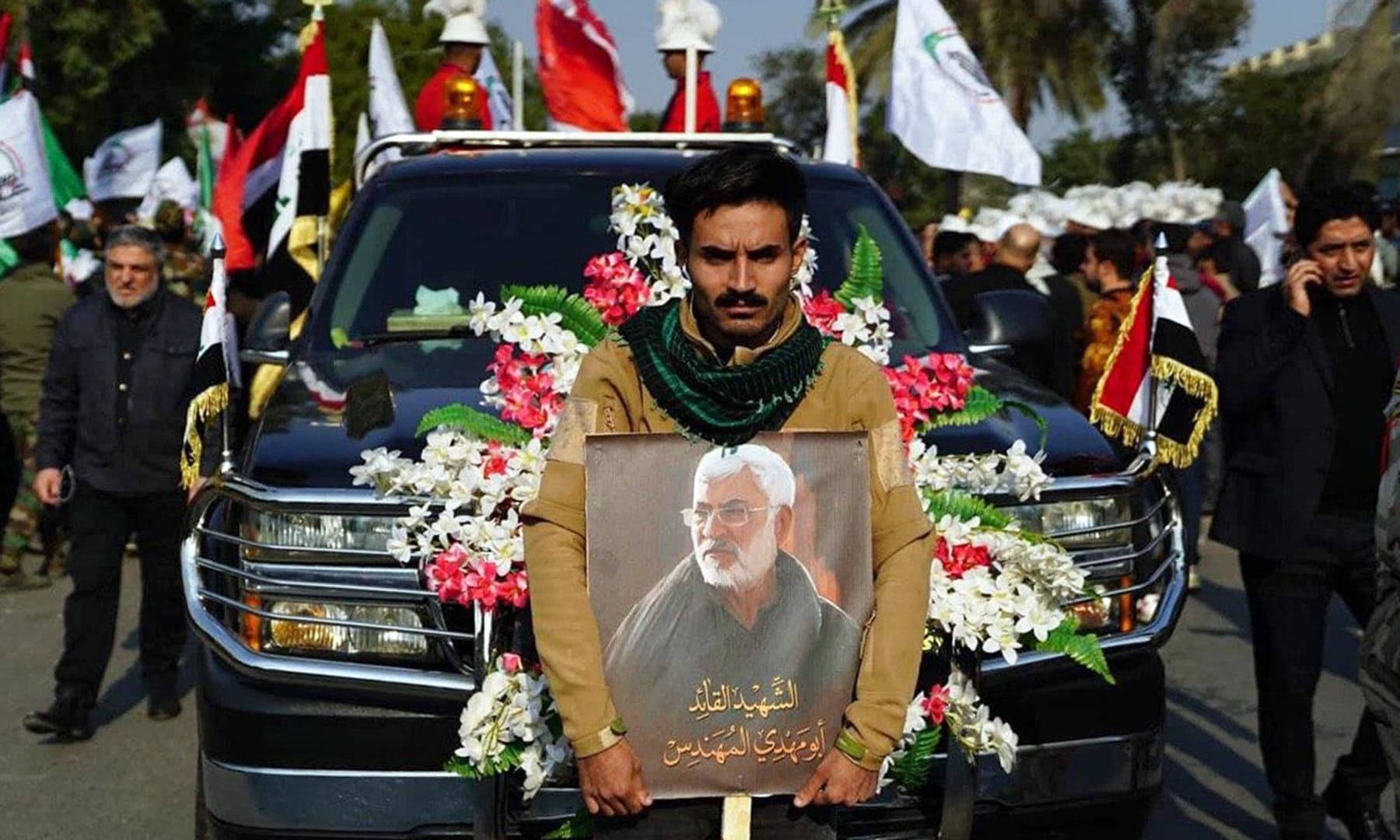Thousands of Iraqis chanting “Death to America” on Saturday mourned an Iranian commander and others killed in a US drone attack that sparked fears of a regional proxy war between Washington and Tehran.
The killing of Iran's Major General Qasem Soleimani on Friday was the most dramatic escalation yet in spiralling tensions between Iran and the United States, which pledged to send thousands more troops to the region.
Iraqi political leaders and clerics attended the mass ceremony to honour 62-year-old Soleimani and the other nine victims of the pre-dawn attack on Baghdad international airport, including Iraqi paramilitary chief Abu Mahdi al-Muhandis.

US President Donald Trump said on Friday he had decided to “terminate” Iran's military mastermind to prevent an “imminent” attack on US diplomats and troops.
“We took action last night to stop a war. We did not take action to start a war,” he insisted.
But the strike — which killed four more Iranian Guards and five members of Iraq's Hashed al-Shaabi paramilitary network — infuriated Iran, whose ambassador to the United Nations, Majid Takht Ravanchi, called it an “act of war” by its arch-enemy.

On Saturday, the Hashed said a new strike had hit a convoy of their forces north of Baghdad, with Iraqi state media blaming the US.
But US-led coalition spokesman Myles Caggins denied involvement, telling AFP: “There was no American or coalition strike.”
Read: New air strike on pro-Iran convoy in Iraq ahead of Soleimani funeral
Mourning procession
Mass ceremonies started in Baghdad Saturday for Soleimani — a veteran military figure revered as a hero by many in Iran and the region — and the other victims of Friday's attack.
Iraq's caretaker premier Adel Abdel Mahdi joined Muhandis associate Hadi al-Ameri, Shia cleric Ammar al-Hakim, former PM Nuri al-Maliki and other pro-Iran figures in large crowds accompanying the coffins.

The coffins were first brought to a revered Shia shrine in northern Baghdad, where thousands of mourners chanted “Death to America!” Dressed in black, they waved white Hashed flags and massive portraits of Iranian and Iraqi leaders, furiously calling for “revenge”.
The crowds headed south to a point near the Green Zone, the high-security district home to government offices and foreign embassies, including America's.

The remains will later be taken to the Shia holy city of Najaf to the south, and the remains of the Guards will then be flown to Iran, which has declared three days of mourning.
As head of the Iranian Revolutionary Guard Corps' foreign operations arm, Soleimani was a powerful figure domestically and oversaw wide-ranging Iranian involvement in regional power struggles.
Soleimani had long been considered a lethal foe by Washington, with Trump saying he should have been killed “many years ago”.

Tehran has already named Soleimani's deputy, Esmail Qaani, to replace him.
His first order of business was made clear on Friday when Iran's supreme leader Ayatollah Ali Khamenei promised “severe revenge” for Soleimani's death.
US scales back ops
Iraqi paramilitary figures including US-blacklisted Qais al-Khazaali and militiaman-turned-politician Moqtada Sadr have called on their fighters to “be ready”.
And, elsewhere in the region, Lebanon's Tehran-backed Shia movement Hezbollah threatened “punishment for these criminal assassins”.
Amid the tensions, the Pentagon said up to 3,500 additional US troops would be dispatched to Iraq's southern neighbour Kuwait, to boost some 14,000 reinforcements already deployed to the region last year.
There are approximately 5,200 US troops stationed across Iraq to train Iraqis to fight militants.
They have faced a spate of rocket attacks that the US has blamed on pro-Iran factions and which last month killed an American contractor.
On Saturday, a US official told AFP the US-led forces were scaling back operations and refocusing surveillance to watch for new rocket attacks.
“Our first priority is protecting coalition personnel,” the official said, saying there would be only “limited” training and anti-militant operations for now.
US citizens were meanwhile urged to leave Iraq immediately and American staff were being evacuated from oil fields in the south.
Abdel Mahdi warned on Friday that the US strike would “spark a devastating war in Iraq”, while President Barham Saleh pleaded for “voices of reason” to prevail.
Pro-Iran factions in Iraq have seized on Soleimani's death to push parliament to revoke the security agreement allowing for the deployment of US forces on Iraqi soil.
Iraqi lawmakers were to convene in emergency session on Sunday and expected to hold a vote.
Analysts said the US strike, which sent world oil prices soaring, would be a game-changer.
Phillip Smyth, a US-based specialist on Shia armed groups, described the killing as “the most major decapitation strike that the US has ever pulled off.” He expected “bigger” ramifications than either the 2011 operation that killed Al-Qaeda chief Osama bin Laden or the 2019 raid that killed IS leader Abu Bakr al-Baghdadi.














































